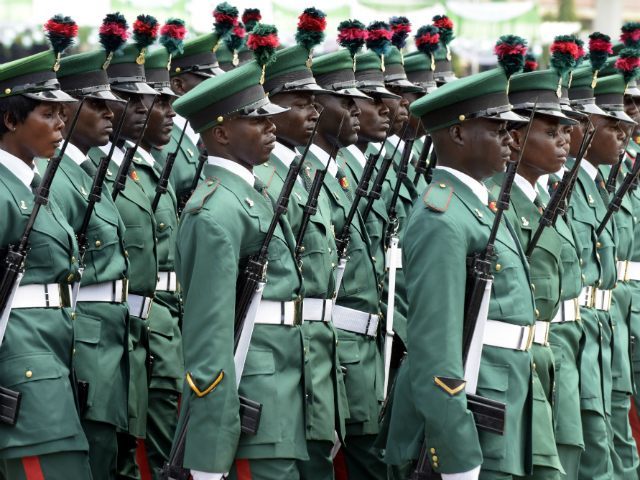While Britain’s own defence budget is being slashed, MPs have discovered that the ring-fenced overseas aid budget is helping to fund armies in developing countries.
Research from the House of Commons Library found that defence spending in some of the countries who were the biggest recipients of British aid had increased, The Times reports.
The figures suggest that the money could have helped at least four countries keep their defence budgets above the international benchmark of 2 per cent of GDP – something the UK has not managed.
The findings were condemned by MPs including Sir Gerald Howarth, former defence minister and MP for the Garrison town of Aldershot, who said the allocation of money “simply does not make sense.”
“By providing aid to countries with increasing defence budgets the UK is effectively subsidising their defence budgets while we are cutting our own.”
Data showed that the defence budget in the Democratic Republic of Congo rose $30 million between 2013 and 2014 while it received £206 million in British aid.
Similarly, Tanzania’s defence budget rose from $330 to $400 million during the same time period having received £224 million from Britain in 2012.
Bangladesh’s defence spending also shot up by $180 million to $1.96 billion a year after £260 million of British tax payers’ money was sent to the South Asian country. India received £292 million in 2012 despite having its own space programme and two years later increased its defence budget, which includes the purchase of 126 French Rafale aircraft at a deal said to cost $20 billion.
Pakistan, where aid is given to help locals fight Islamic insurgents particularly in the Swat Walley, received £2,189 million from Britain and spend $6.3 billion on defence in 2014.
Soldier-turned-politician Mike Hookem MEP said the figures were “utterly disgraceful”.
“To announce further cuts to the military, while continuing to ring fence the bloated and wasteful international aid budget, is nothing short of a betrayal of both the armed forces and the security of the UK as a whole,” he said.
Politicians from the across the parties have expressed concern that Britain will now not meet its own NATO commitment to spend at least 2 per cent of GDP on defence in the coming years, following the news that George Osborne will be slicing a further £500 million from the Ministry of Defence.
Although the cuts were smaller than feared military personnel are concerned the cut backs could result in military equipment being delayed or a reduction in training. It will certainly continue to concern the US who only last week warned the UK risked losing our status on the world stage if we did not spend more on defence.
Sir Gerald believes that the government should commit to defence spending at 2 per cent of GDP rather than see the cash sent off in overseas aid – recent missions of which include a Chinnock helicopter sent to Nepal in the aftermath of the earthquake, manned by British troops, which was not allowed to land.
In a reply to questions from Breitbart London, the Ministry of Defence confirmed that the money spent on flying the military equipment came out of the international aid budget but said they could not confirm how many forces personnel were also involved in the mission and if their costs were also paid for.
David Cameron’s decision to ring fence the overseas aid budget to 0.7 per cent of GDP while allowing other departments to suffer cuts has enraged many in his own party and lost him the support of many traditionally Tory voters.
Stories have revealed that much of the money is being wasted on useless projects and expensive consultancies because Whitehall cannot spend the money quickly enough.
Whitehall responded to the figures saying that it was expected that defence spending would increase as developing countries’ economies approved thanks to British aid.
“Our investment in international development helps create more stable, secure and prosperous countries, which is firmly in Britain’s interest,” a spokesman for the Department for International Development said.

COMMENTS
Please let us know if you're having issues with commenting.